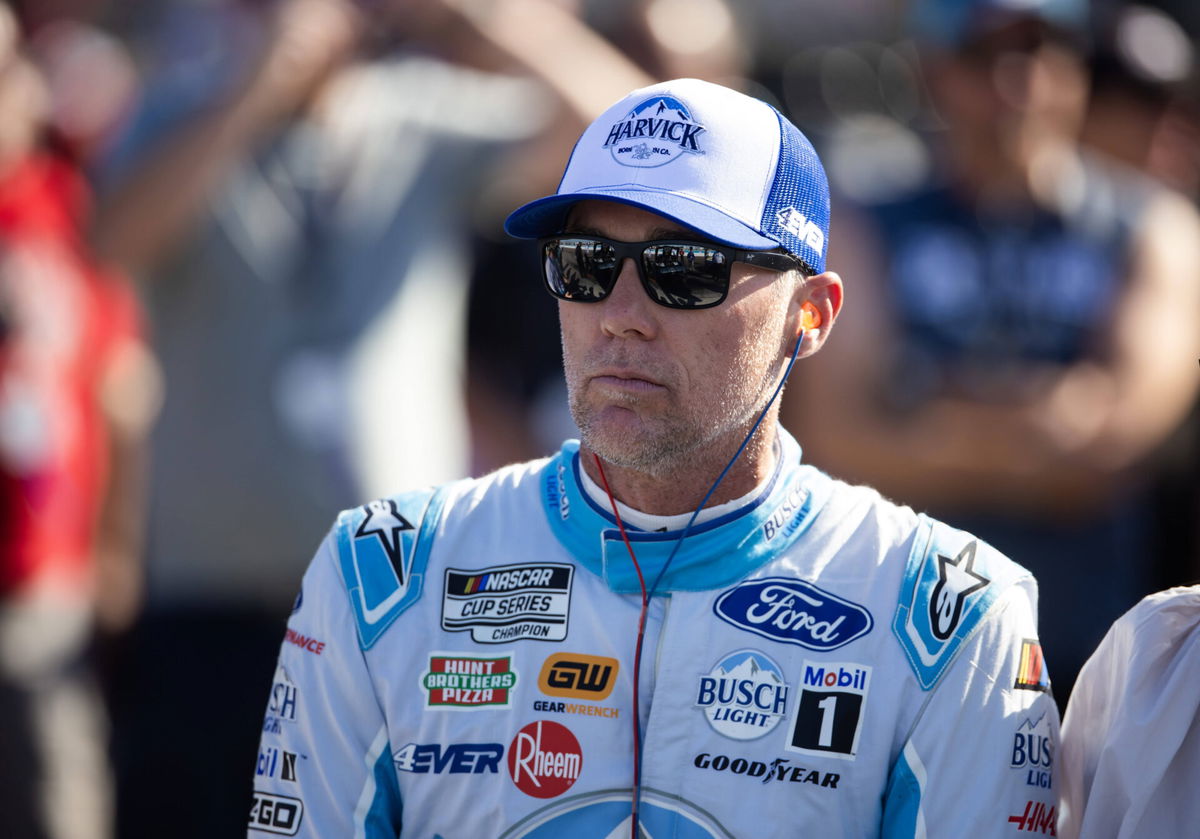
Imago
NASCAR, Motorsport, USA Cup Series Championship Qualifying Nov 4, 2023 Avondale, Arizona, USA NASCAR Cup Series driver Kevin Harvick during qualifying for the NASCAR Championship Race at Phoenix Raceway. Avondale Phoenix Raceway Arizona USA, EDITORIAL USE ONLY PUBLICATIONxINxGERxSUIxAUTxONLY Copyright: xMarkxJ.xRebilasx 20231104_mjr_su5_006

Imago
NASCAR, Motorsport, USA Cup Series Championship Qualifying Nov 4, 2023 Avondale, Arizona, USA NASCAR Cup Series driver Kevin Harvick during qualifying for the NASCAR Championship Race at Phoenix Raceway. Avondale Phoenix Raceway Arizona USA, EDITORIAL USE ONLY PUBLICATIONxINxGERxSUIxAUTxONLY Copyright: xMarkxJ.xRebilasx 20231104_mjr_su5_006
Last year, the Senior Vice President of Competition, Elton Sawyer, threw a blanket over increasing horsepower in the NASCAR Cup Series. The drivers were looking forward to the change, but as Sawyer put it, “(The OEMs) love the Next Gen car. The one thing they’re not going to do, is they’re not going to build a V8, pushrod engine.” Fast forward to now, and his stance has changed. With Dodge’s comeback to the Truck Series next season, and then eventually to the Cup Series, discussions in garages have shifted. Stellantis is resuming production on the Hemi V8 engine. General Motors, Chevrolet’s parent company, has also begun stepping in the same direction. But although drivers love the idea of increased horsepower, they’re not thrilled about how OEMs manipulate NASCAR’s decisions, including Kevin Harvick.
Watch What’s Trending Now!
In the recent episode of the Happy Hour podcast, Harvick and his ex-crew chief, Rodney Childers, discussed improvements in the Next Gen cars. That’s when Harvick also shared his thoughts on the horsepower debate. He said, “I know we talk about the power thing, and we talk about the manufacturers. Obviously, we see Dodge coming into the sport and doing the things that they’re doing… I don’t really understand why we just don’t put a bigger restrictor plate on there to see what another big horsepower increase.
“I think right now, they gave them enough power to just tell everybody that they gave them some more power. It’s not going to move the needle, unless you get 150 more horsepower. And I understand that (for) the manufacturers and the engines, it takes time to get the parts. But I’m like ‘Don’t you wanna try it even for short tracks?'”
Childers agreed to Harvick, giving his reasoning, “I’ve always felt like the durability side comes from the RPM. We can make 900-horsepower engines that turn 7,800 RPM and last five races. I don’t think it would be too hard.”
The horsepower conversation that Kevin Harvick is so fired up about isn’t just idle chatter. NASCAR admits it’s exploring boosting power, particularly on short tracks, as early as 2026. Currently, the Gen 7 cars are tuned to roughly 650-670 HP, but some in the field believe a rise toward 750 HP would make a noticeable difference, with more throttle, more tire wear, and more drama. OEMs’ preferences regarding cost, durability, and branding influence what NASCAR allows. As a result, drivers often feel that power is held back more by these agreements and manufacturer pressure than by pure performance potential. That’s why Harvick also pointed fingers at them.
Kevin Harvick added, “And I know that’s not what the teams and the engine manufacturers want to hear, but I think that the teams have too much control. They have too much control of the rules. Manufacturers, you know, they’ll do probably whatever they have to do, but at some point, we have to try to blow the thing up to make it better in a big way.”
For some manufacturers, an increased horsepower is certainly their next step. As mentioned above, Dodge is already set to return with a V8 engine. According to reports, the Dundee Engine Plant in Michigan is already producing Hemi V8s. Moreover, the 6.4-liter has continued to be under the hood of the Ram Heavy Duty trucks along with a 5.7-liter and 6.4-liter “392 Hemi,” as well as the 6.2-liter supercharged Hellcat V8.
Additionally, General Motors has recently invested $888 million to start production of next-gen V8 engines as soon as 2027 in its Buffalo plant. Currently, GM continues to produce the current generation V8 engines. Sawyer, too, confirmed, “We are working closely with all the stakeholders in the industry, and as I said, the collaboration has been better than ever in our sport on all topics. This particular one, had a team owner council meeting last week, came up and we discussed that.
“Working closely, I know [senior vice president of innovation and racing development] John Probst had a conversation with our engine builder to see what we could do, how that would look, and what changes would need to be made.”
Amid all this, and a conversation with Rodney Childers about the Gen 7 car, Harvick seems to be sure that enhancing horsepower can be a great move for NASCAR, both for its drivers and the manufacturers. Only time will tell how other OEMs too adopt the V8 engines.


